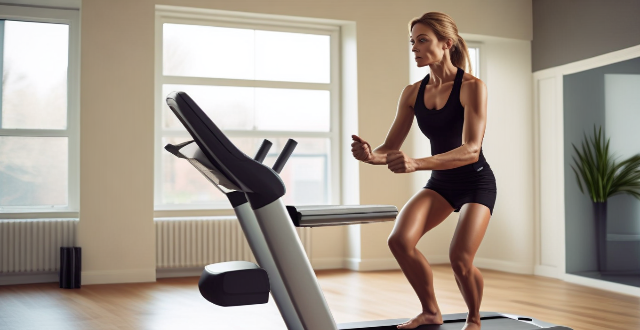Hydration is crucial for athletes to maintain performance and support their immune system. It helps maintain fluid balance, regulate body temperature, and support nutrient delivery during exercise. Proper hydration strengthens the immune system, reduces infection risk, and enhances recovery. Athletes should stay well-hydrated before, during, and after exercise to optimize their body's ability to fight off infections and recover from physical stresses.

The Role of Hydration in the Relationship between Exercise and Immunity
Introduction
Hydration is a critical component when discussing the relationship between exercise and immunity. It plays a significant role in maintaining overall health, especially during physical activities. This article will delve into the importance of proper hydration for athletes and how it impacts their immune system.
The Importance of Hydration in Exercise
*Maintaining Fluid Balance*
- During exercise, the body loses fluids through sweat, which can lead to dehydration if not replenished.
- Dehydration can cause fatigue, reduced performance, and increased heart rate.
- Proper hydration helps maintain electrolyte balance and supports muscle function.
*Regulating Body Temperature*
- Sweating is the body's natural cooling mechanism, but it also leads to water loss.
- Adequate hydration ensures that the body can continue to produce sweat effectively.
- Overheating can impair immune function and increase susceptibility to illness.
*Supporting Nutrient Delivery*
- Water is essential for transporting nutrients and oxygen to working muscles.
- Dehydration can impede this process, leading to reduced energy production and recovery.
- Proper hydration aids in the removal of waste products from muscles, supporting immune health.
Impact on Immunity
*Strengthening the Immune System*
- Hydration supports the production of lymph, a fluid crucial for immune cell transportation.
- Well-hydrated individuals may have more efficient immune responses.
- Dehydration can suppress immune function, making athletes more vulnerable to infections.
*Reducing Infection Risk*
- Proper hydration dilutes bacteria in urine, reducing the risk of urinary tract infections (UTIs).
- It also helps maintain mucosal surfaces, acting as a barrier against pathogens.
- Dehydration can compromise these defenses, increasing the likelihood of respiratory infections.
*Enhancing Recovery*
- After exercise, rehydration is essential for replenishing lost fluids and nutrients.
- This aids in muscle repair and reduces inflammation, both of which are important for immune health.
- Adequate post-exercise hydration can shorten recovery time and reduce the risk of illness.
Practical Tips for Athletes
*Pre-Exercise Hydration*
- Drink water regularly throughout the day to ensure you start your workout well-hydrated.
- Avoid diuretics like caffeine before exercise as they can increase fluid loss.
*During Exercise Hydration*
- Sip on water or a sports drink every 15-20 minutes during prolonged activities.
- Monitor urine color; it should be light yellow to indicate proper hydration.
*Post-Exercise Hydration*
- Replenish lost fluids immediately after exercise by drinking water or a balanced electrolyte solution.
- Eat hydrating foods like fruits and vegetables that contain high water content.
Conclusion
Proper hydration is vital for athletes to maintain their performance and support their immune system. By staying well-hydrated before, during, and after exercise, athletes can optimize their body's ability to fight off infections and recover from physical stresses. Remember, staying hydrated is not just about quenching your thirst; it's about ensuring your body has what it needs to perform at its best and stay healthy.